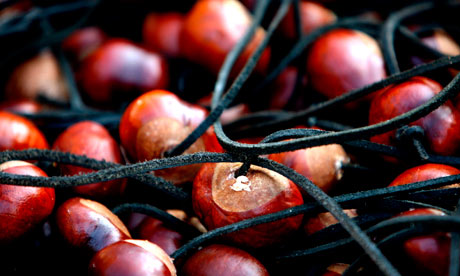The Kennel Club has suspended random testing of dogs for banned substances – such as hairspray – following a revolt by owners who say some of the practices are endemic and do not represent cheating.
With sports governing bodies clamping down on cheats using performance-enhancing substances, this was the canine equivalent.
In a battle against the use of hairspray and other grooming products to enhance the appearance of dogs at its shows, the Kennel Club introduced random laboratory testing for banned substances at its flagship Crufts event this year.
However, the crackdown is now in disarray following a revolt by dog owners who do not consider the tactics to be cheating.
Every dog to be checked at the event tested positive for banned substances, but, under pressure from owners, the Club has agreed not only to take no action against the offending dogs or their handlers, but also to suspend the entire testing regime.
The opposition has been led by a group of owners – nicknamed the "Elnett revolutionaries", after the popular hairspray brand – who are trying to force a changes in the rules to legalise some of the banned practices.
Owners of several breeds are suspected of using hairspray to keep their animals' fur in place and some openly admit to doing so.
Owners of some white-coloured dogs also apply chalk to cover blemishes on their pets, while silicone gels are also suspected of being used to add lustre of the animals' coats.
The testing regime introduced at Crufts was similar to that used in athletics, with competitors selected for testing at random and escorted from the competition area – in this instance the parade ring – to provide a sample.
Rather than provide a urine sample, hairs were taken from the dogs by veterinary surgeons and were then sent to a forensics laboratory to be tested for traces of banned substances.
Of the four dogs tested at the event, in March, two miniature poodles - Glayvar Got Wot It Takes and a Swedish dog, Sandust Market Master - tested positive for the presence of lacquer (hairspray) and two West Highland white terriers - Karamynd Play The Game and Alfie The Prince of White Gallardo, from Holland - tested positive for chalk, or a similar substance.
But around 2,500 owners signed a petition against the testing regime and at a Kennel Club meeting on the issue attended by 300 members, a clear majority backed calls for it to be halted.
The suspension will be discussed at another club meeting later this month at which owners and breed clubs are to push for relaxation of the rules on some banned substances.
As well as calling for greater leniency in what is permitted, they believe the testing regime is flawed because animals could become "contaminated" by other dogs, and "humiliating" for those who are escorted from the parade ring to undergo checks.
Sandy Vincent, secretary of the Standard Poodle Club of Great Britain, said: "The bottom line is that we've always used hairspray.
"We know it is against the rules but everyone has done it and done it very carefully. There are lots of different breeds that do it.
"Whether you like it or not, dog shows are beauty competitions of sorts. (The ban on hairspray) is like Miss World going in without her make up on."
Fredaricka West, honorary secretary of the West Highland White Terrier Club of England, said: "We don't want people to think excessive use of chalk is acceptable but a little bit from a chalk block should be permitted at the show for last minute cleaning treatment – to tidy your dog up."
Jennie Griffiths, from Leebotwood, near Shrewsbury, and Anita Kuik, from Dalfsen, Holland, whose terriers failed tests, said chalk was used, not for cosmetic purposes, but as a recognised and approved part of the grooming process - as in many other wire-haired breeds - and that it was impossible to remove all traces before shows.
“It is not to alter the natural colour, substance of the coat or any of those things,” Mrs Griffiths added. “Inevitably they were going to find grains of chalk, any scientific test would.”
Christina Johansson, from Sweden, whose poodle Sandust Market Master tested positive for hairspray, insisted she had not used the substance, and believed the animal's coat could have been contaminated by spray used by other competitors in the backstage area, or by material passed from other dogs via the judge's hands.
"If someone uses lacquer, it ends up on all the dogs. I saw a lot of people using spray, from all breeds. I do not use spray," she added.
The owner of the fourth dog declined to comment but is understood to also deny any suggestion of cheating.
One possible compromise would be to allow hairspray to be used only on the heads of the animals and for small amounts of chalk to be permitted.
However, Caroline Kisko, Kennel Club secretary, said its general committee would have to approve any permanent change in the rules.
She acknowledged that the use of lacquer and chalk powder were common among certain breeds. She added: "We believe it is cheating. The dog is not showing its natural coat.
"A lot of owners feel this way as well and we have to take in all views. We agreed to suspend testing but the regulations are still in place."










